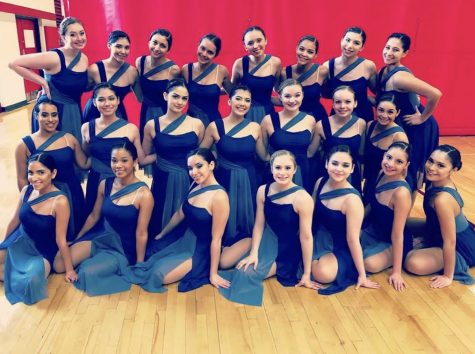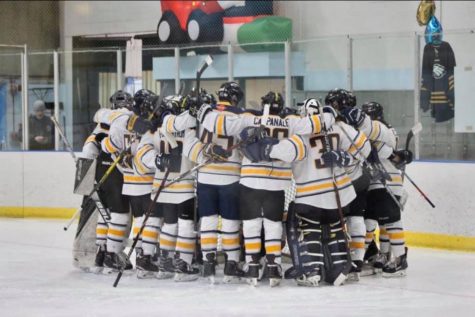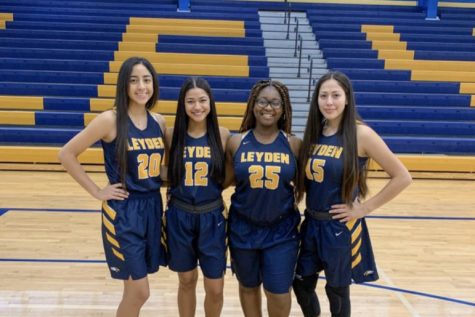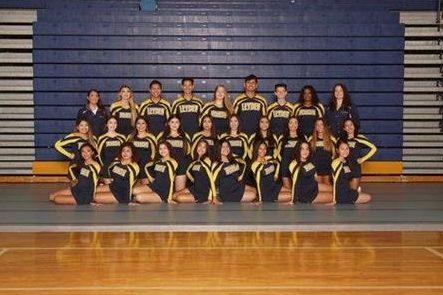A Legacy Against Losing
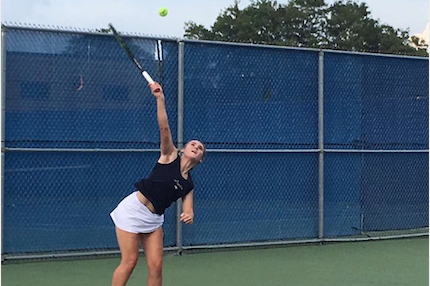
Julia Kostadinova, Senior, serving during her tennis match.
There she was, playing a singles game with a powerful teammate who could hit fast, deep serves. Marking her last set by opening a new set of tennis balls fills her ears with a “psst,” she eyes her rival from Oak Park-River Forest High School, the school that eliminated her in last year’s sectionals, the barrier between her and state.
She bounces the fresh neon-yellow ball three times before tossing it up into the air. It reaches its apex and starts to descend, her arm arcs up to slice serve the ball over the net. The ball smacks the left corner of her opponent’s court. Fifteen love. The opponent strikes back. Fifteen all. The match continues. Thirty all. Forty thirty.
“This is so stupid,” she repeats to herself like a mantra, stopping herself from swearing, as that could disqualify her. “Not like it matters now anyway,” she says. Game point. Her opponent swings, the ball in the air, traveling for what seems like forever. The ball reaches the ground. She swings, her racket scraping the court, barely touching the ball. She sees the ball go over the net. “OUT,” she hears, and with that, the match ends, leaving senior Julia Kostadinova short of her goal.
“I had been playing for almost two hours. I was so frustrated with myself for making dumb mistakes and glooming over them that it affected me mentally and caused me to lose,” Kostadinova said. “But my competitiveness has shaped me into the person I am today.”
When Kostadinova first started playing tennis, she hated it. “I never wanted to go to practice,” she said. “My parents forced me, and I was always making up excuses not to go.” But soon, that was no longer the case. “One day, a coach at practice found a fire in me and expressed his interest in wanting to personally train with me,” she said. “I felt amazed that someone deemed that I could do it.” Kostadinova and her coach trained for years together, and with him, she won her first-ever trophy, which pushed her to believe that she could strive to be the best only if she believed in herself.
As Kostadinova grew older, her hard work was put to the test all through middle school and high school. “My tennis schedule conflicted with school and other extracurricular activities. Balancing life at home, school, and on a court was challenging enough. I used every available hour to do my homework, and I’d take priority in catching up over the weekends, even if that meant canceling my plans,” Kostadinova said. “But after a couple of weeks, months, and eventually years, I found a balance in my life to make the best of the three worlds.” Kostadinova manages to maintain a 4.0 GPA, exemplary attendance, along with playing badminton in the spring, and tennis all year round.
Kostadinova expresses that “tennis helps [her] perform strategically, think straight, and take [her] mind off most things, such as stress. It’s a sport that really enhances [her] focus on the game and court.” When she’s on the green battlefield, she knows she needs to stay tough and keep her eyes on the ball, focusing on the opponents to win. “When I didn’t win, I would get mad at myself, swear at how bad I did, and how much of a failure I was because of how competitive I was that drove me to lose,” Kostadinova remarks. “I thought that being competitive was horrible, so I tried to turn my competitiveness not against others but instead, against myself.”
Whatever it is, whether it’s playing tennis or pursuing a new passion, Kostadinova wants to motivate herself to be the best player and person she can be. In addition, she wants to teach others in the future that they have to keep going because they came this far go further. “I want to continue my playing in college and eventually even start a career in tennis,” she says. “I want to teach others that success takes time. It may be a slow process, but quitting won’t speed it up.”
Despite losing many matches in her tennis career, Kostadinova learned that sometimes you have to lose the battles to win the war. Through playing tennis, she’s grown in other areas of her life.
“Tennis has been part of my life for seven years now, and throughout those years, the memorable, painful losses and the euphoric wins have shaped me into the person that I am today,” Kostadinova said. “Tennis is my legacy, and I want everyone to know that.”

